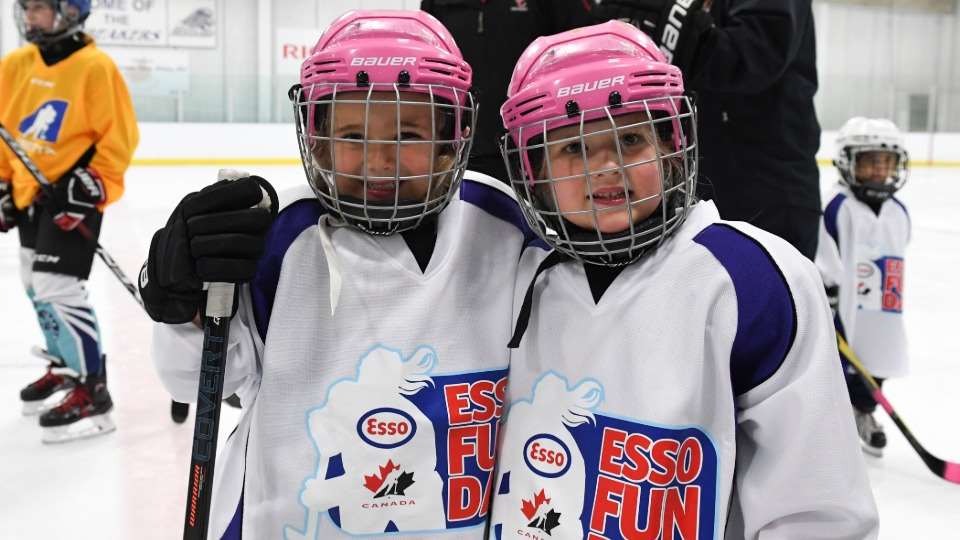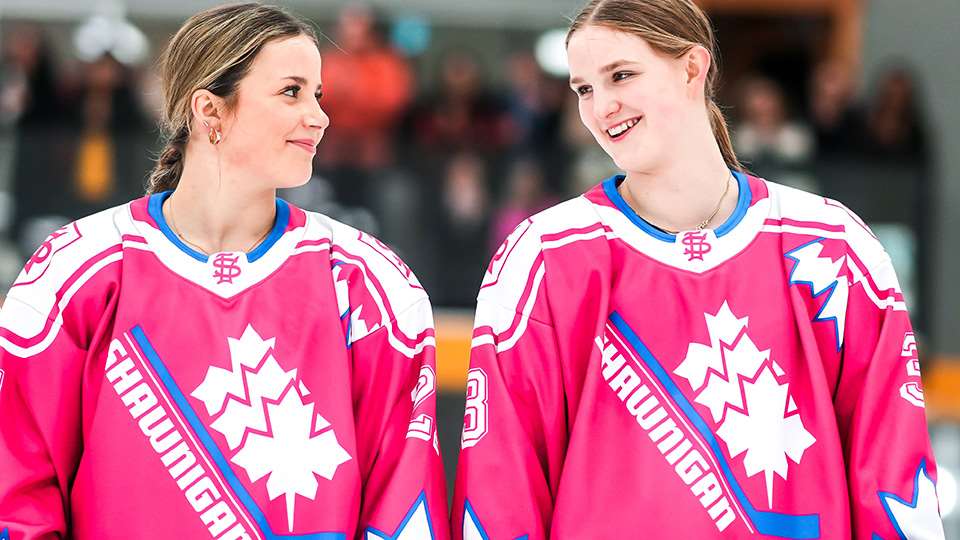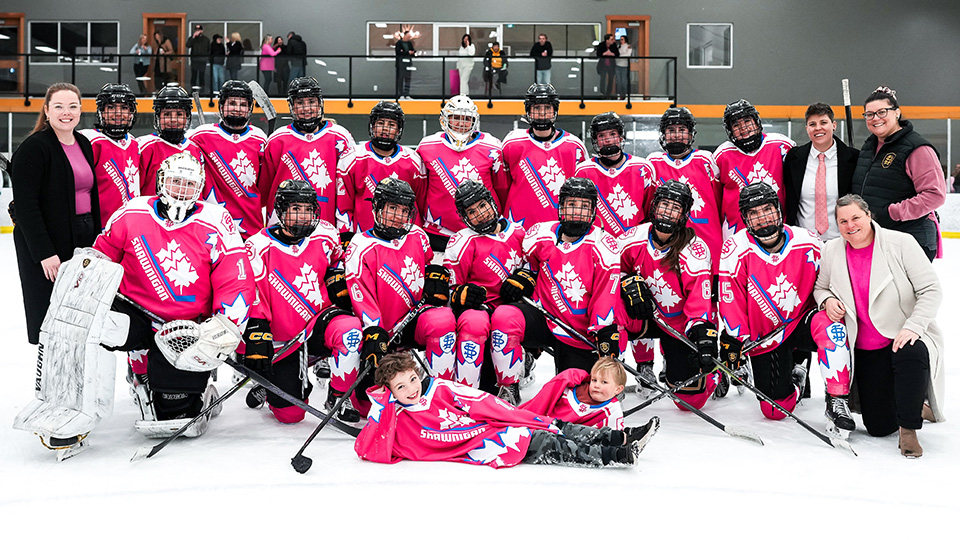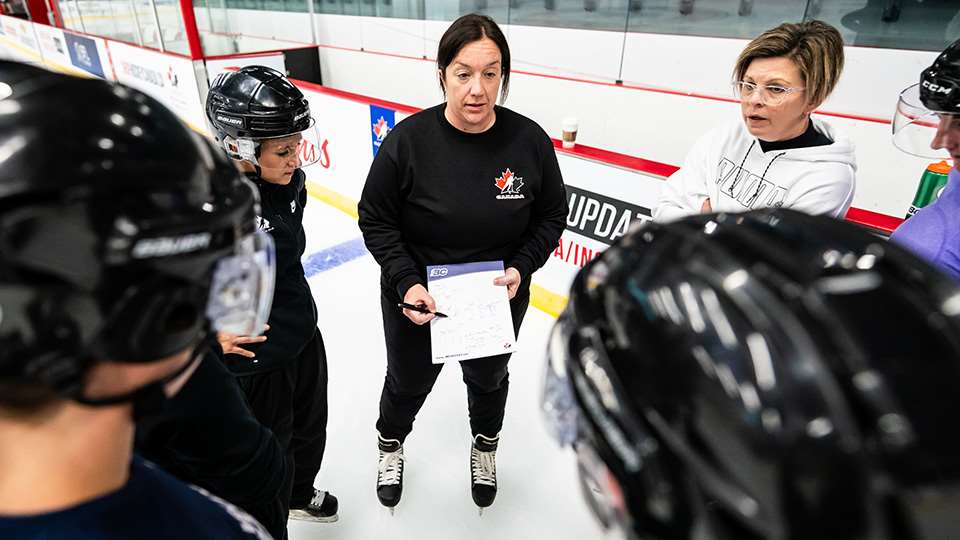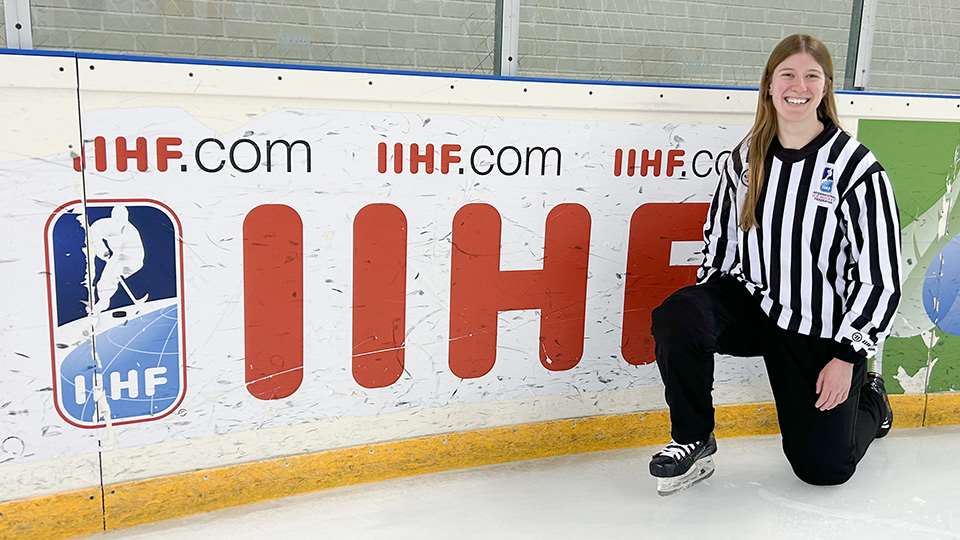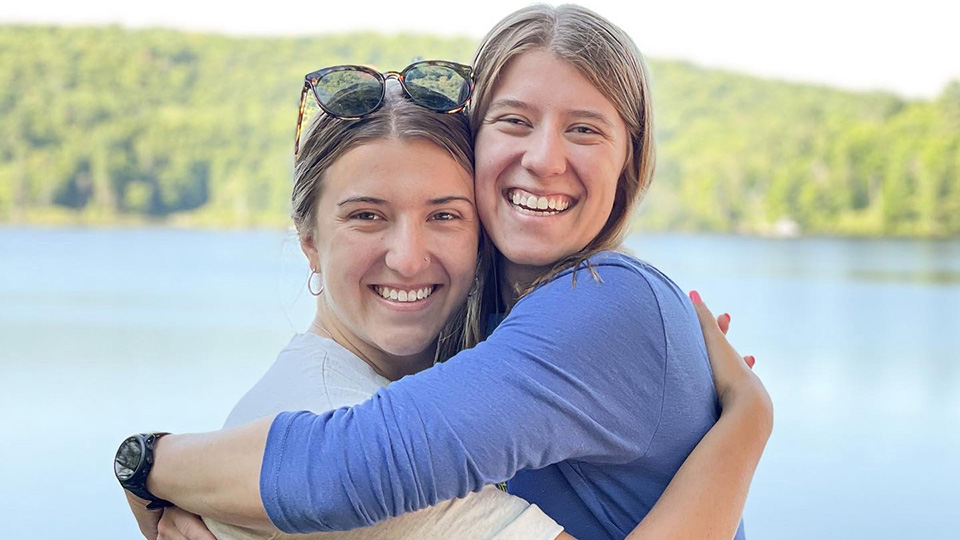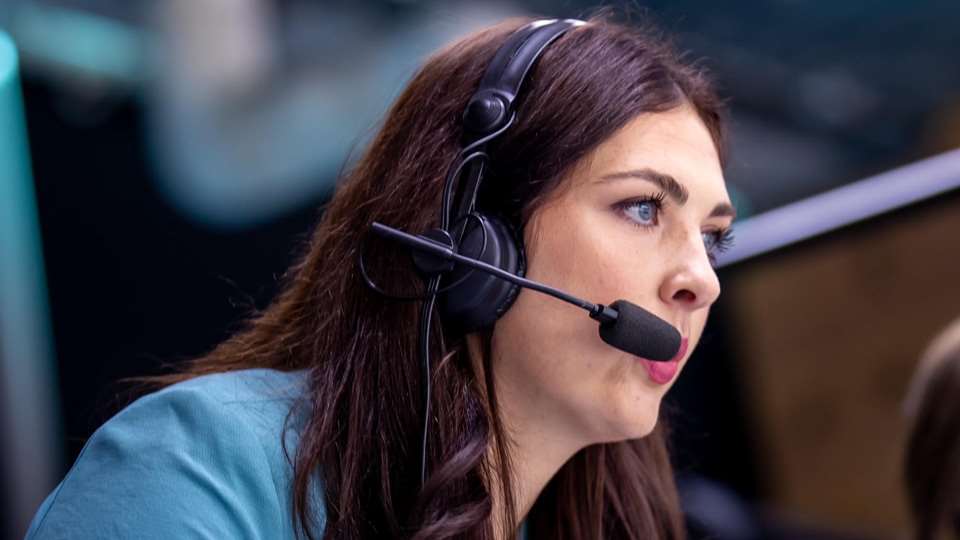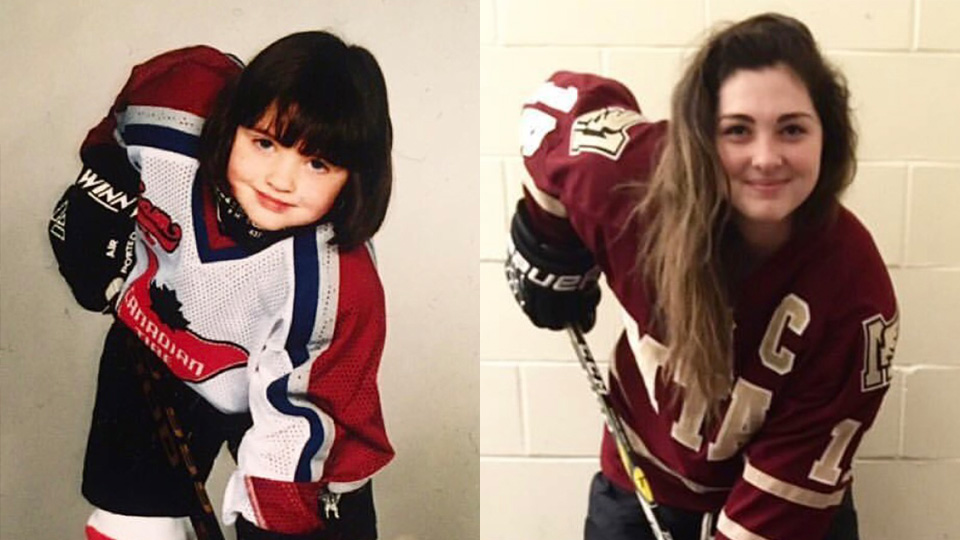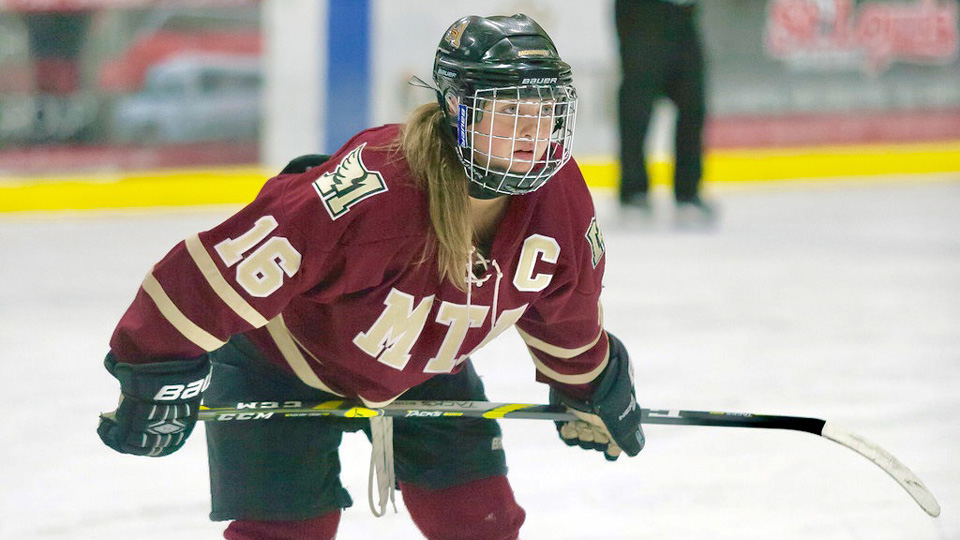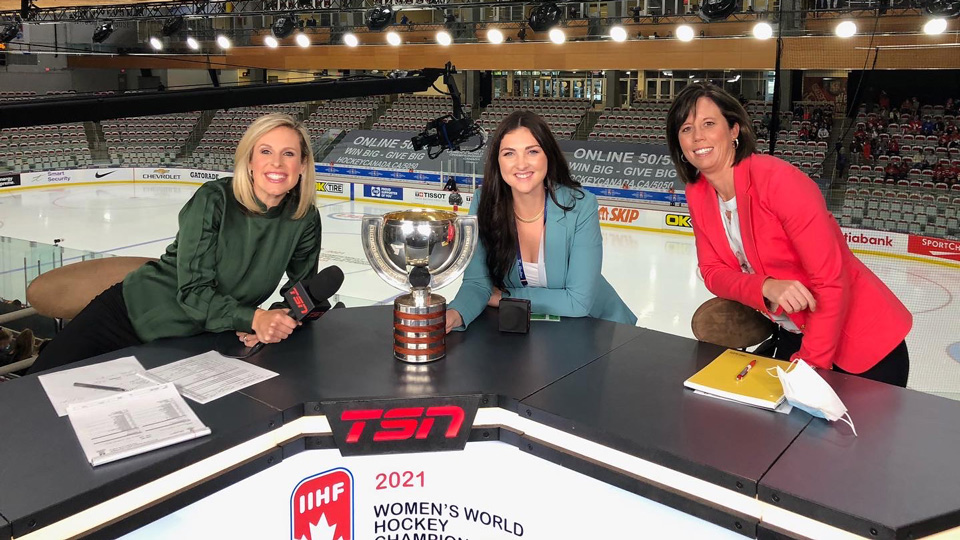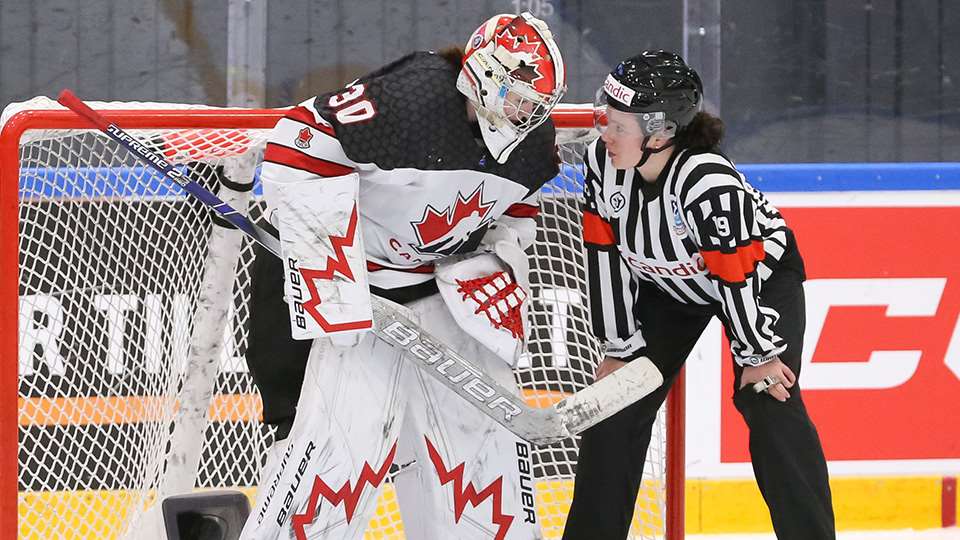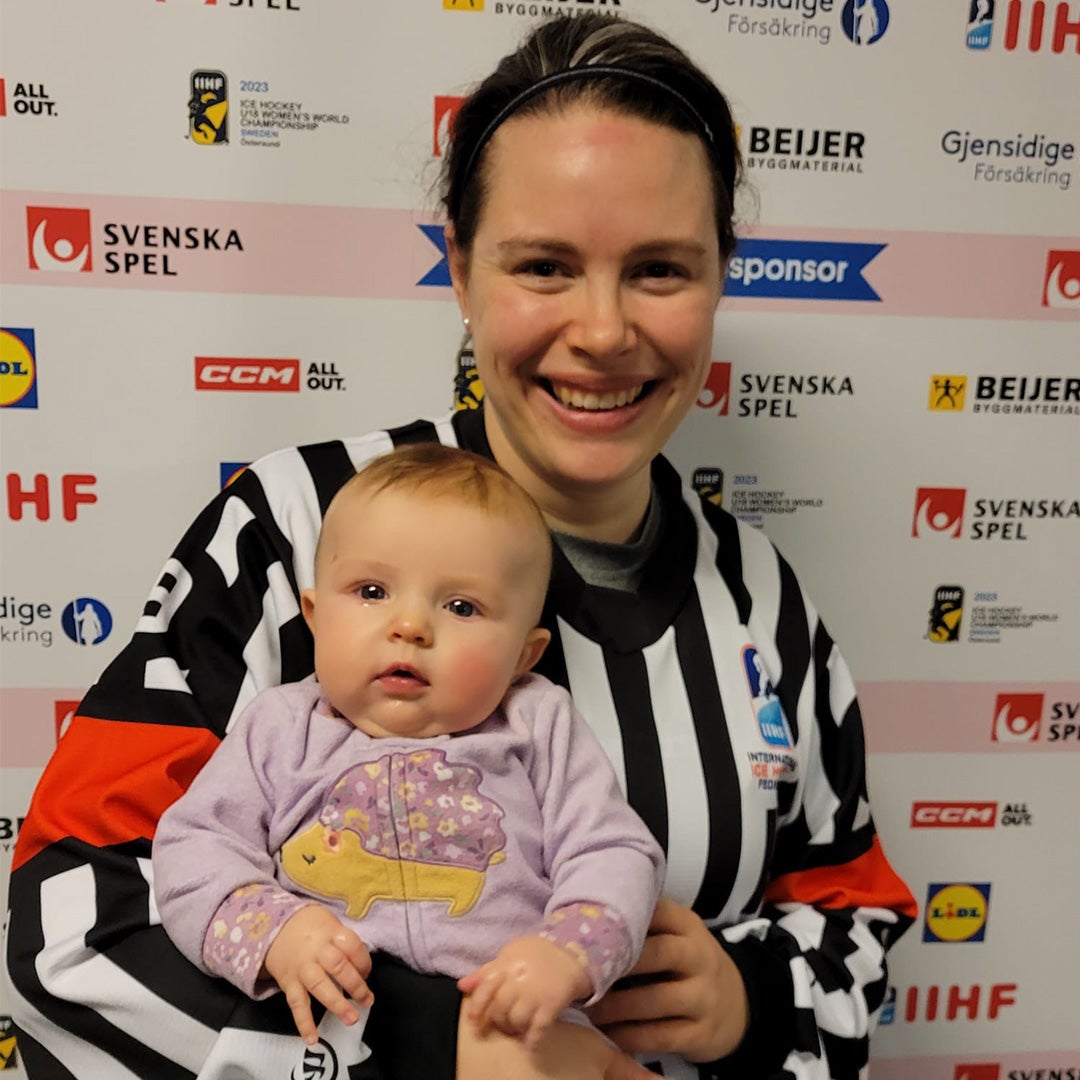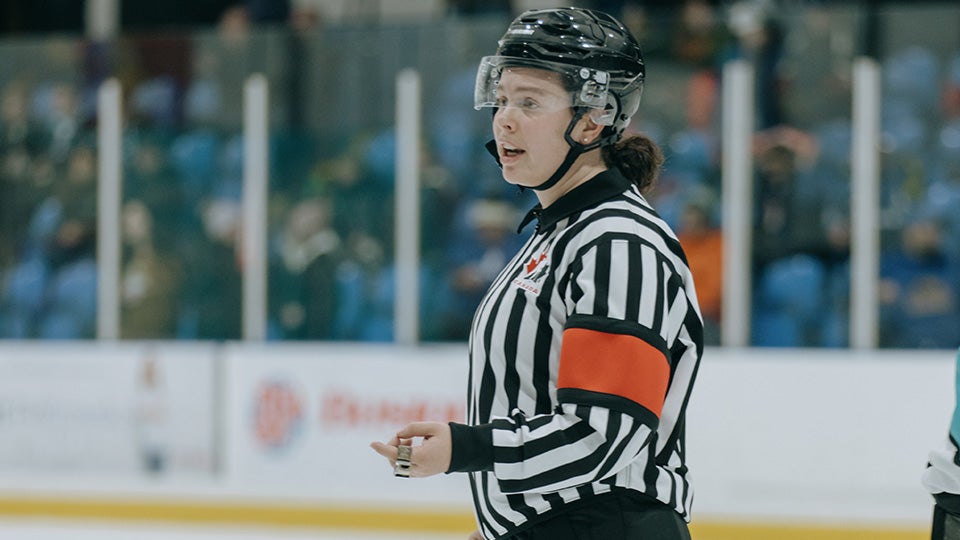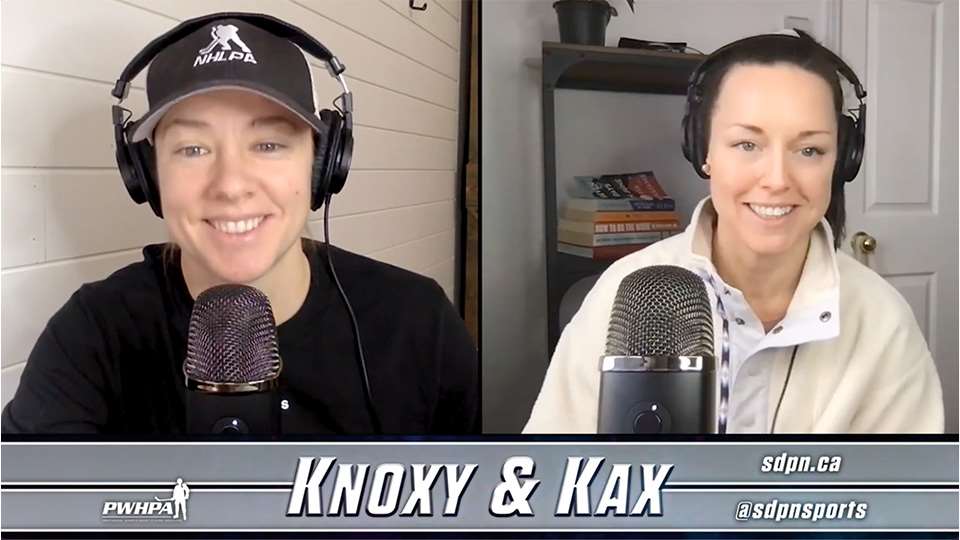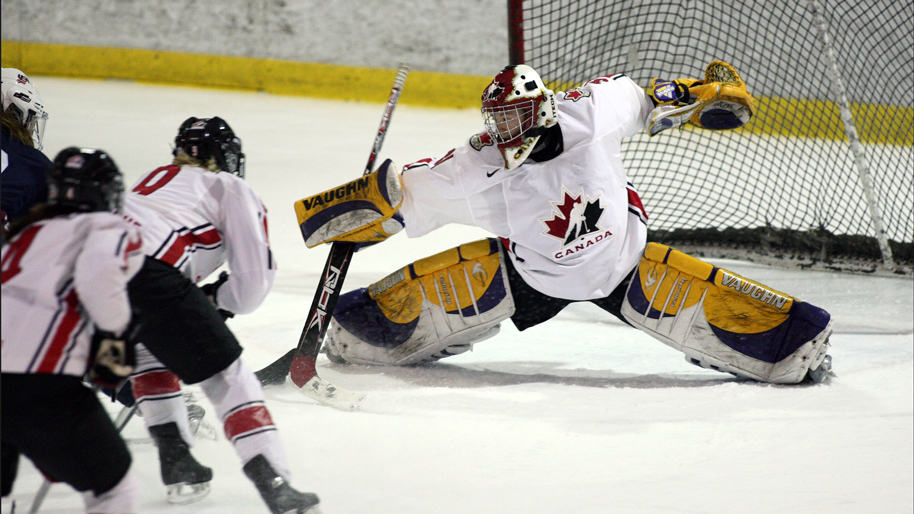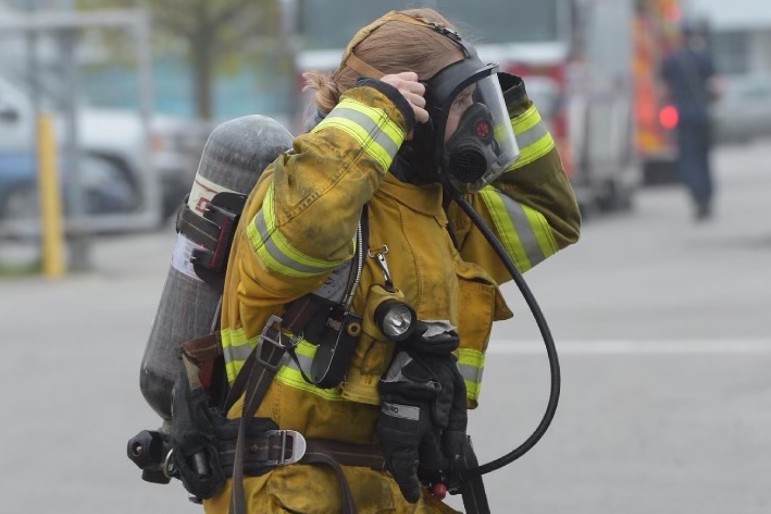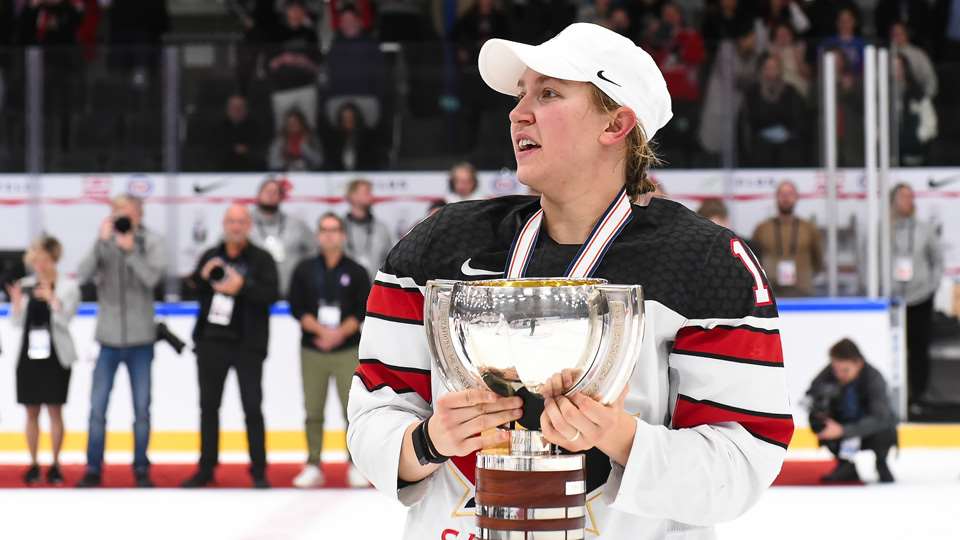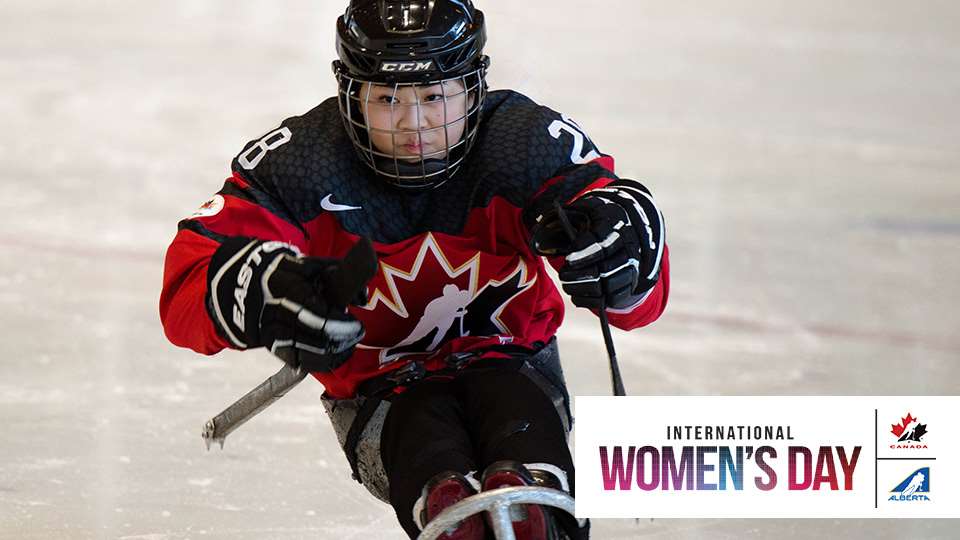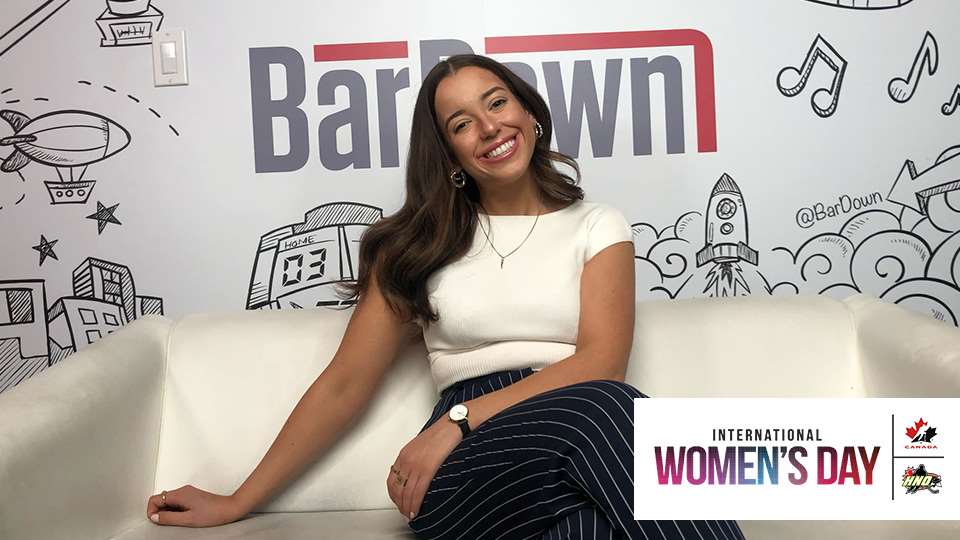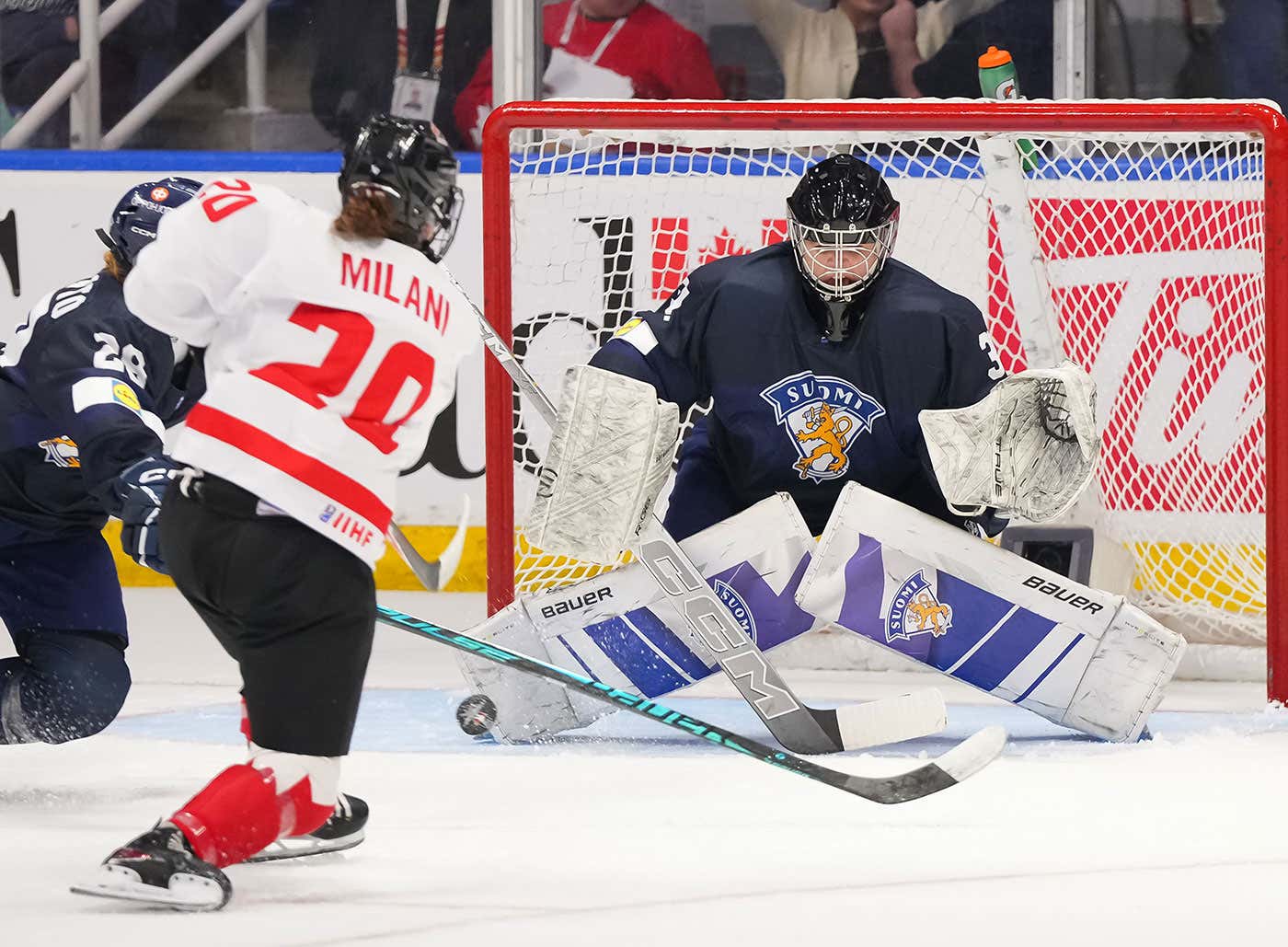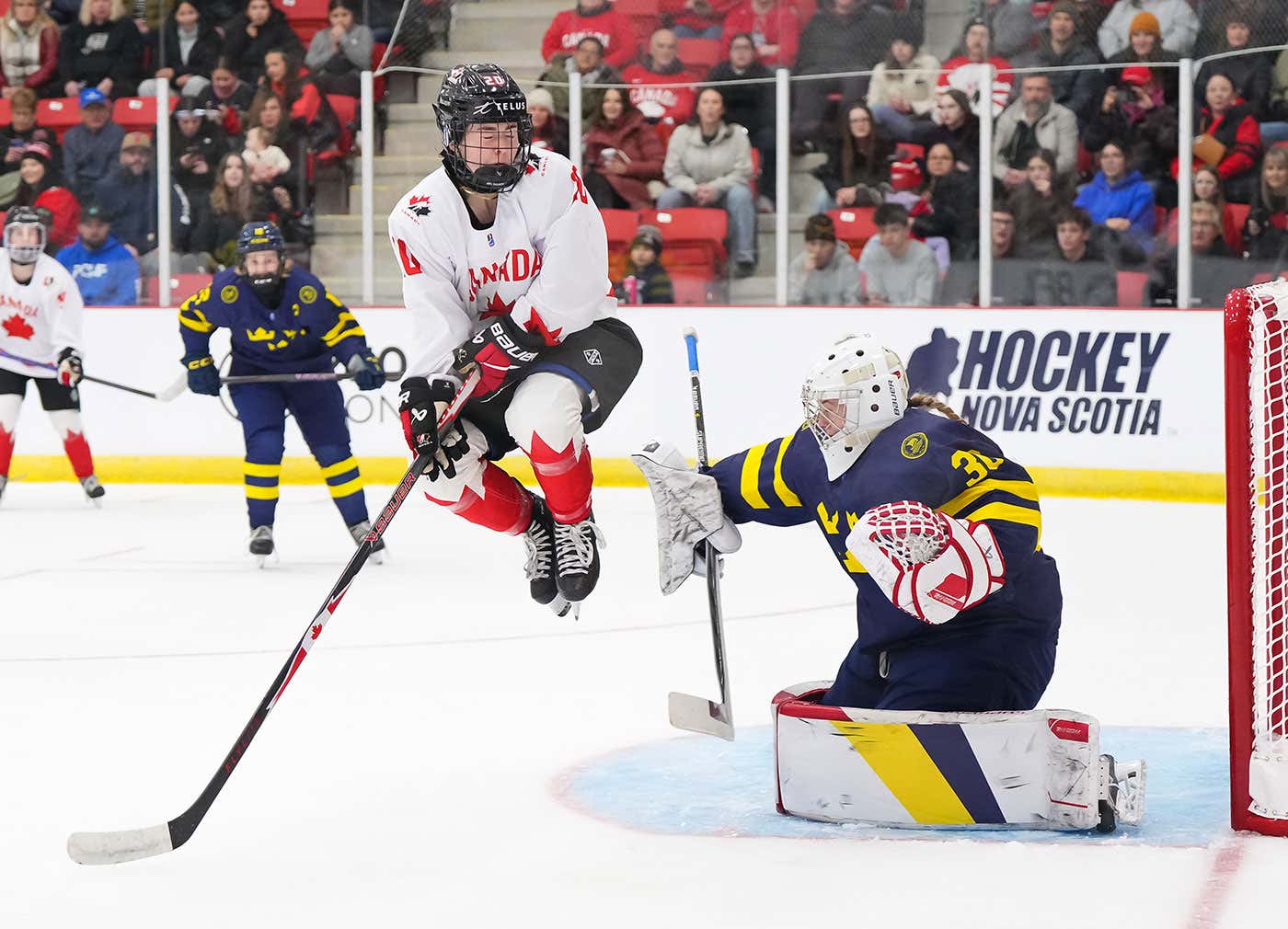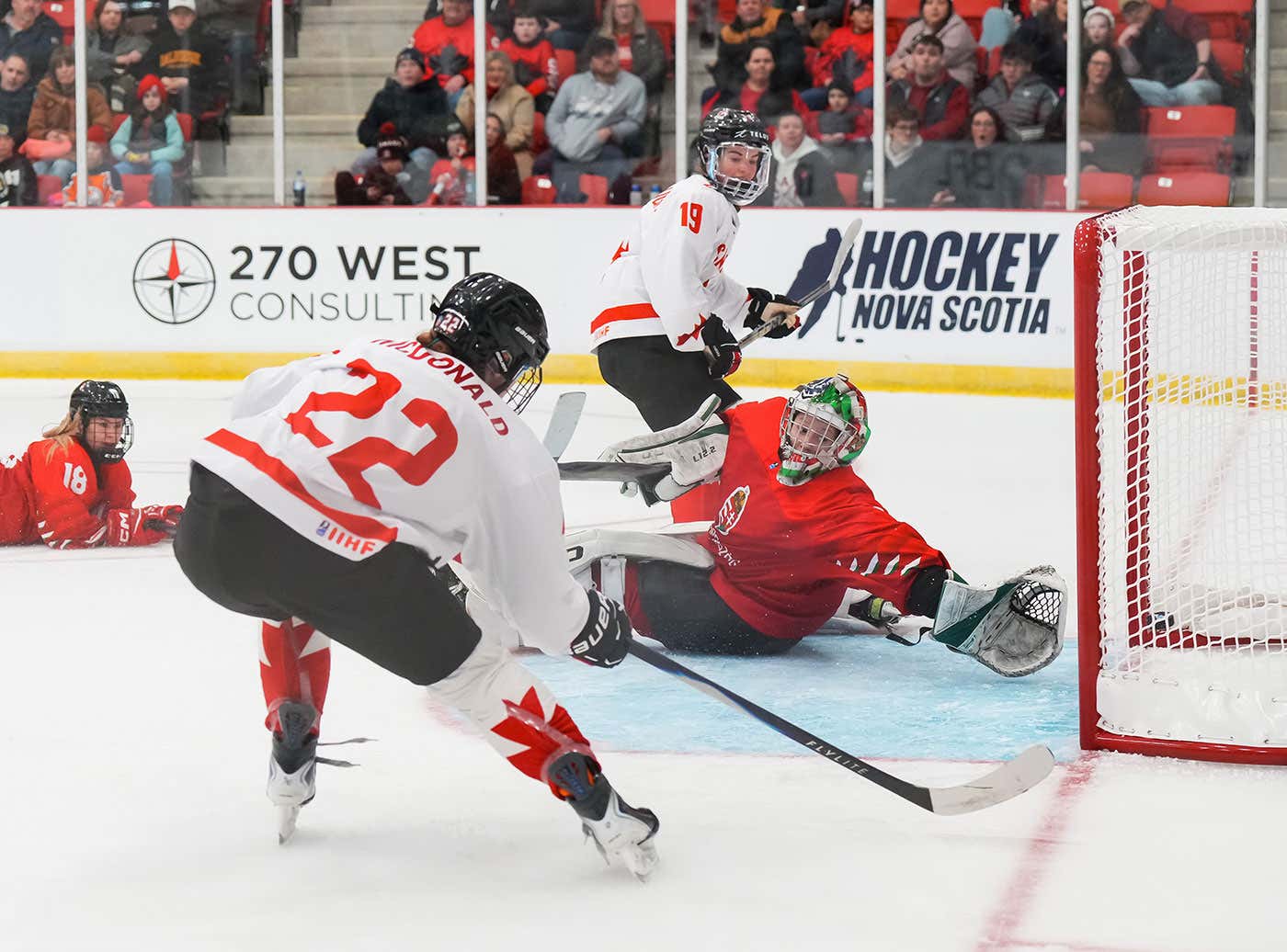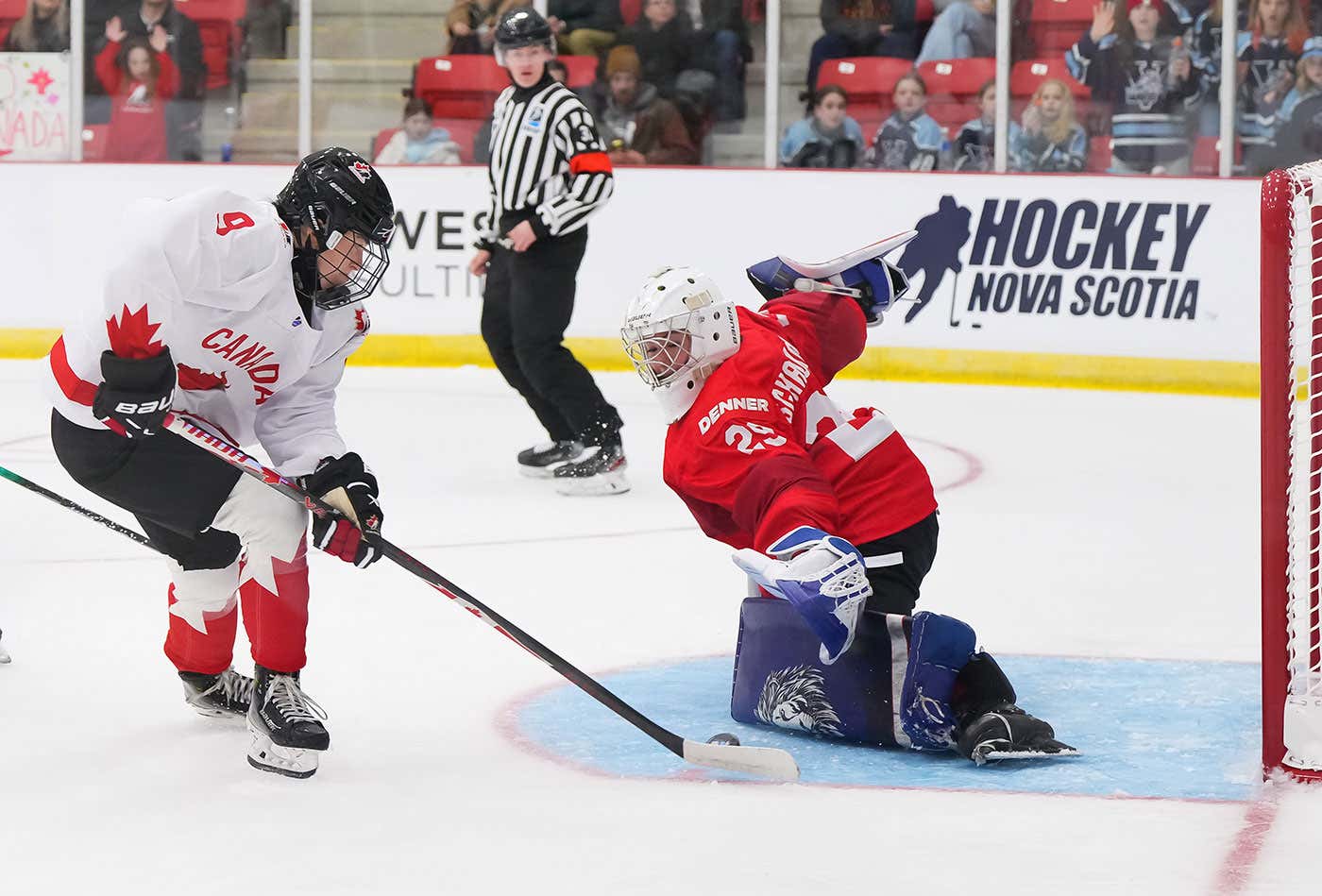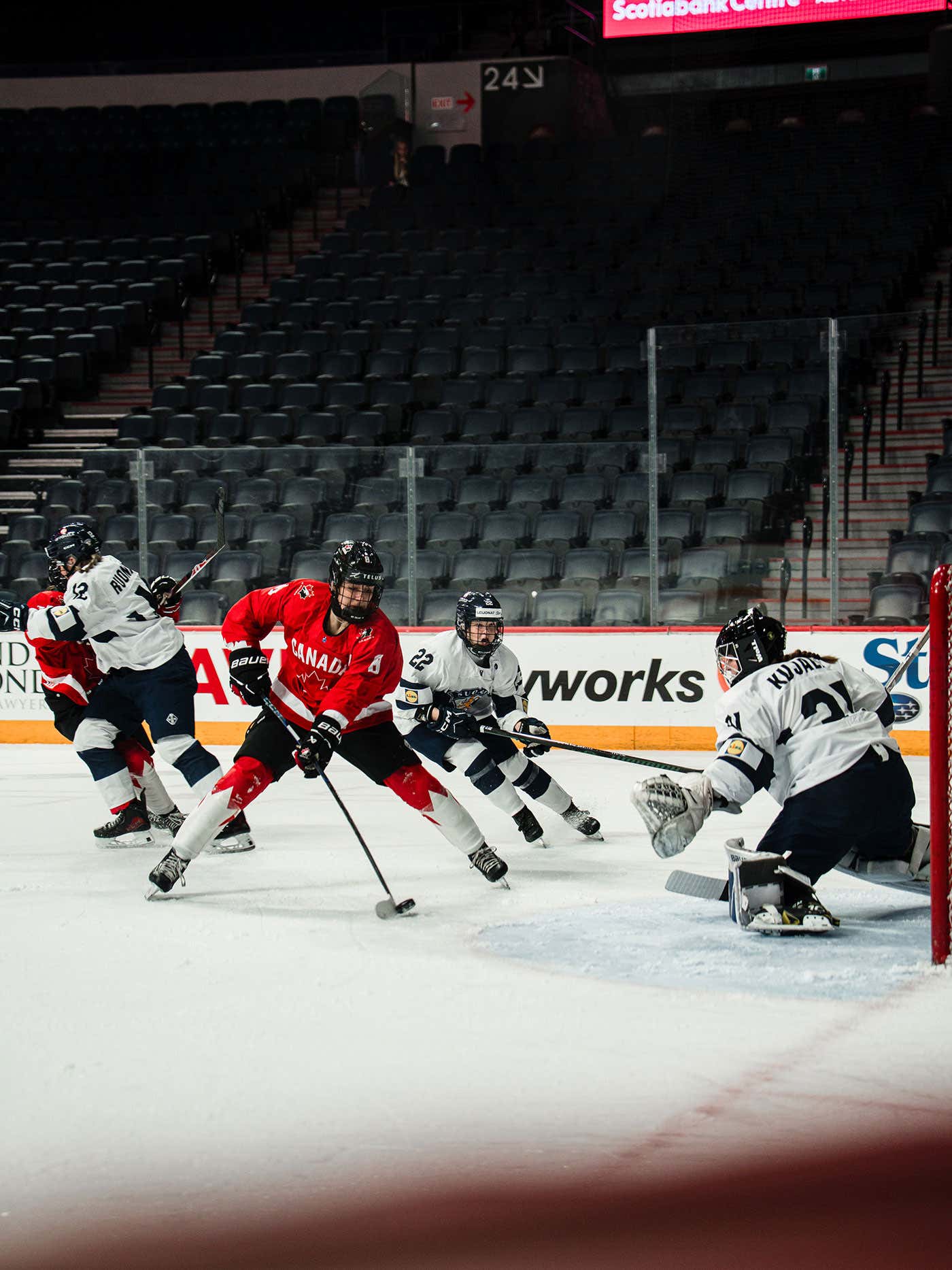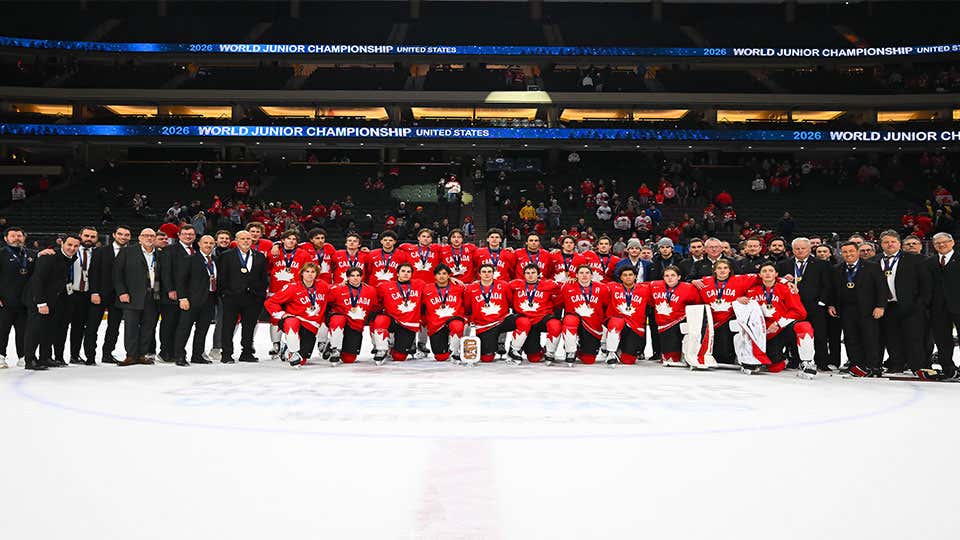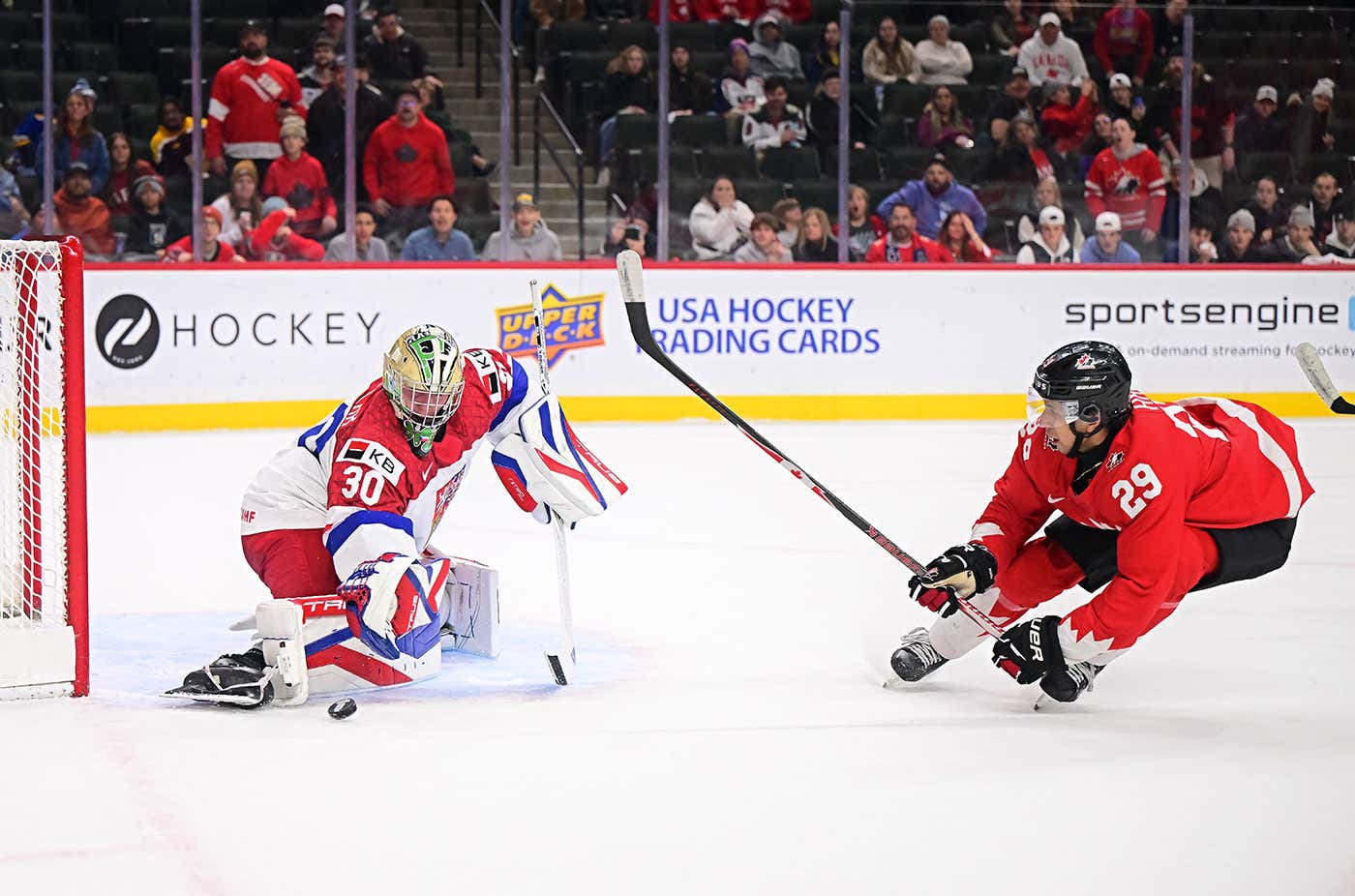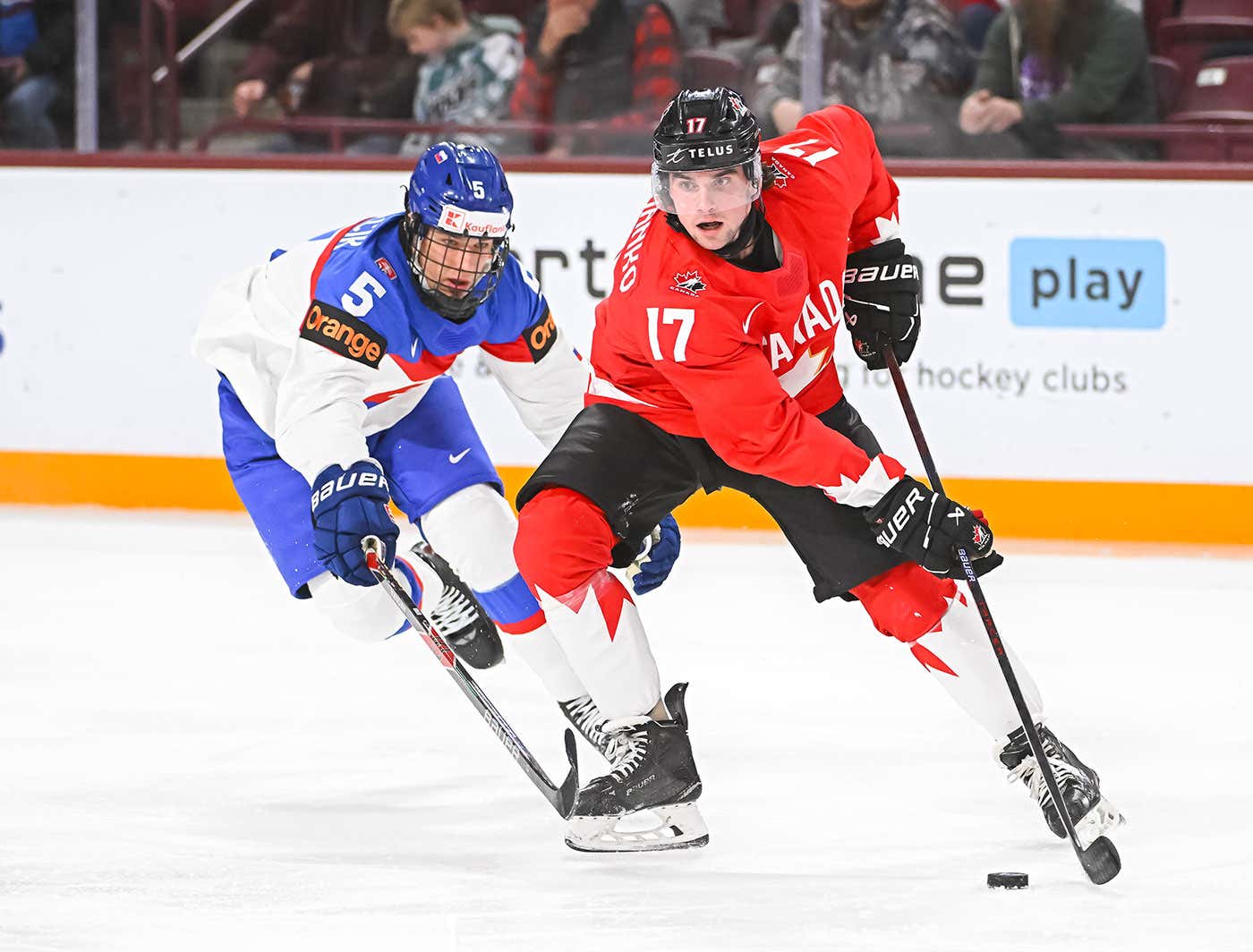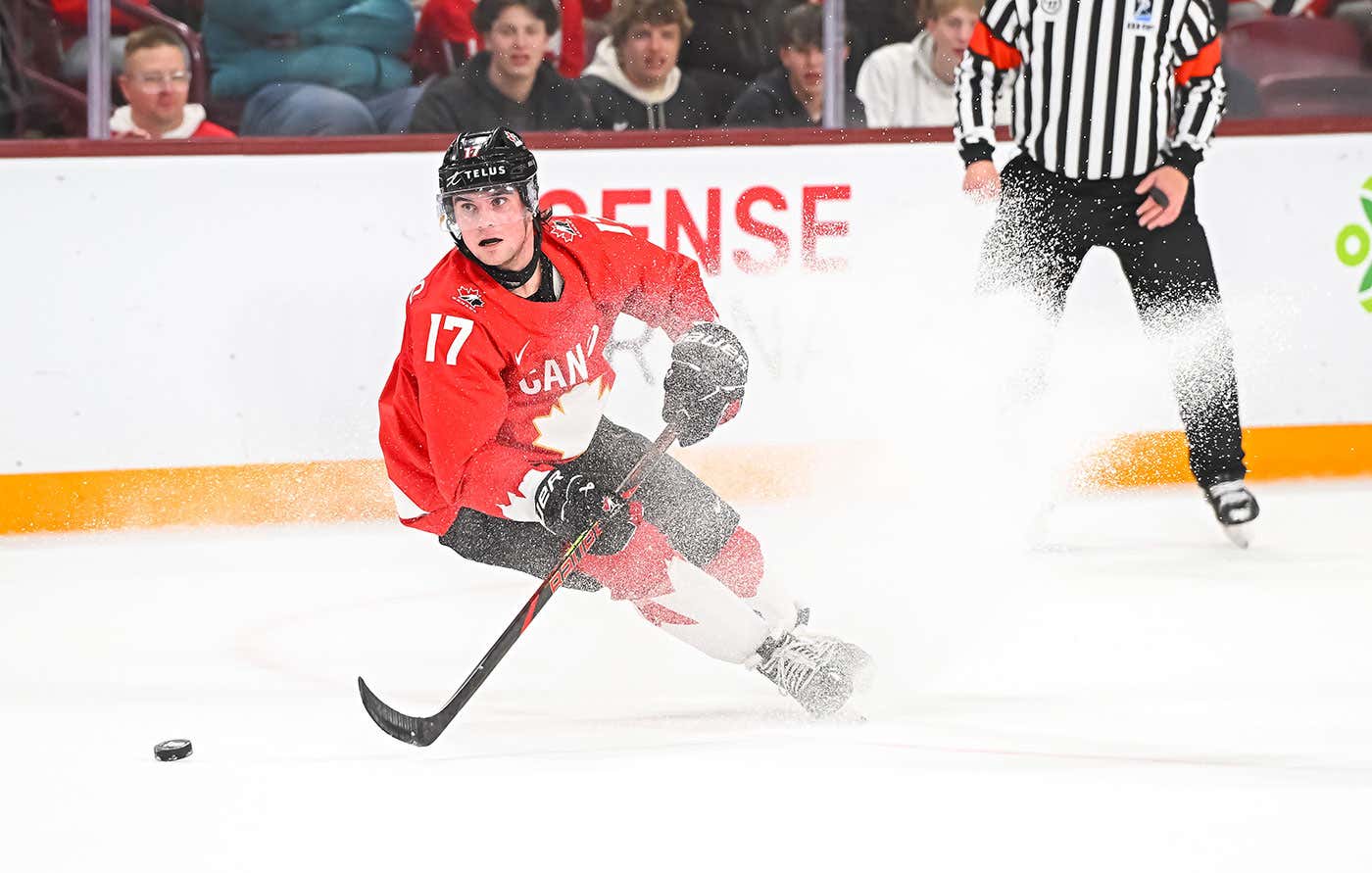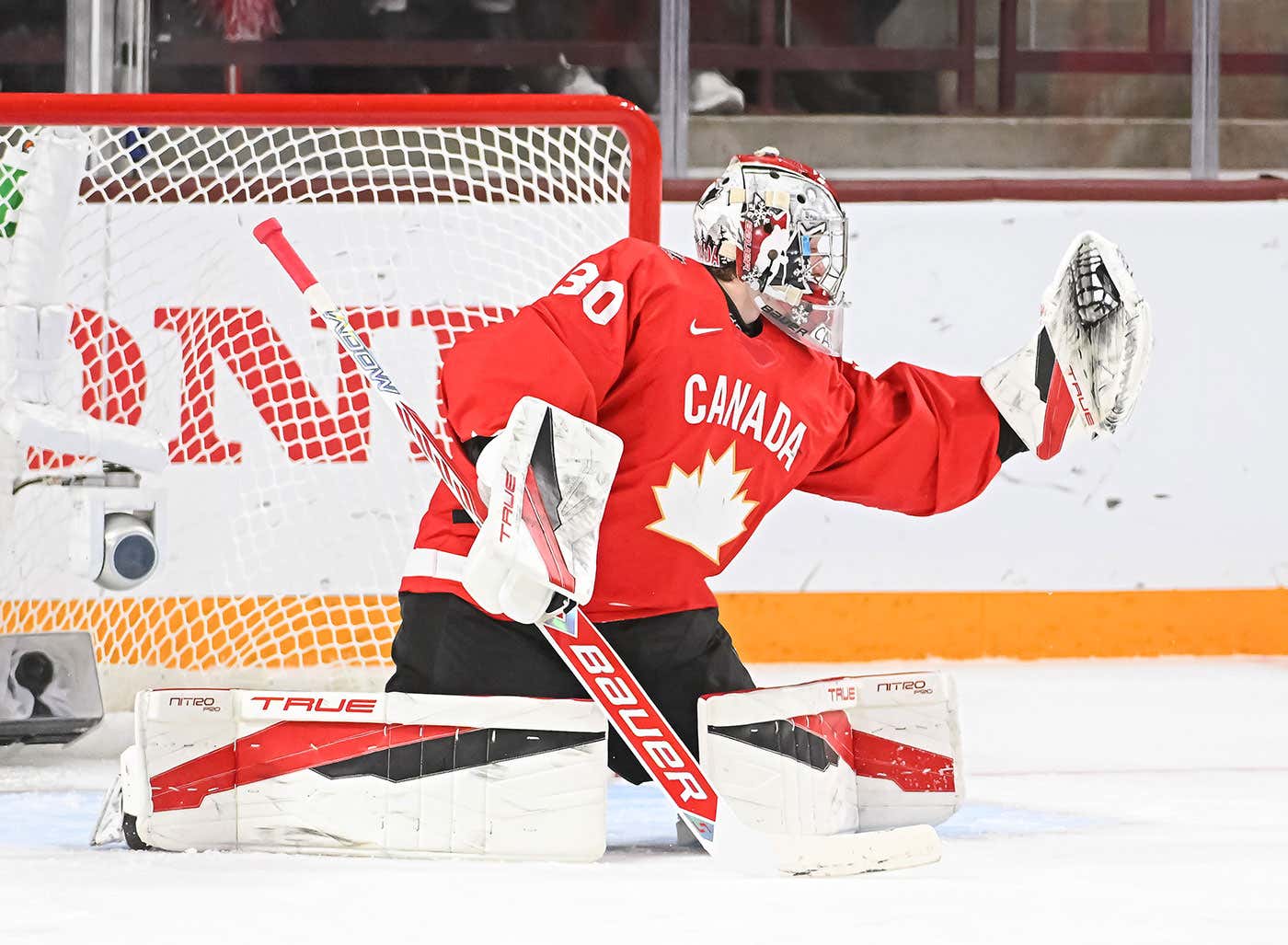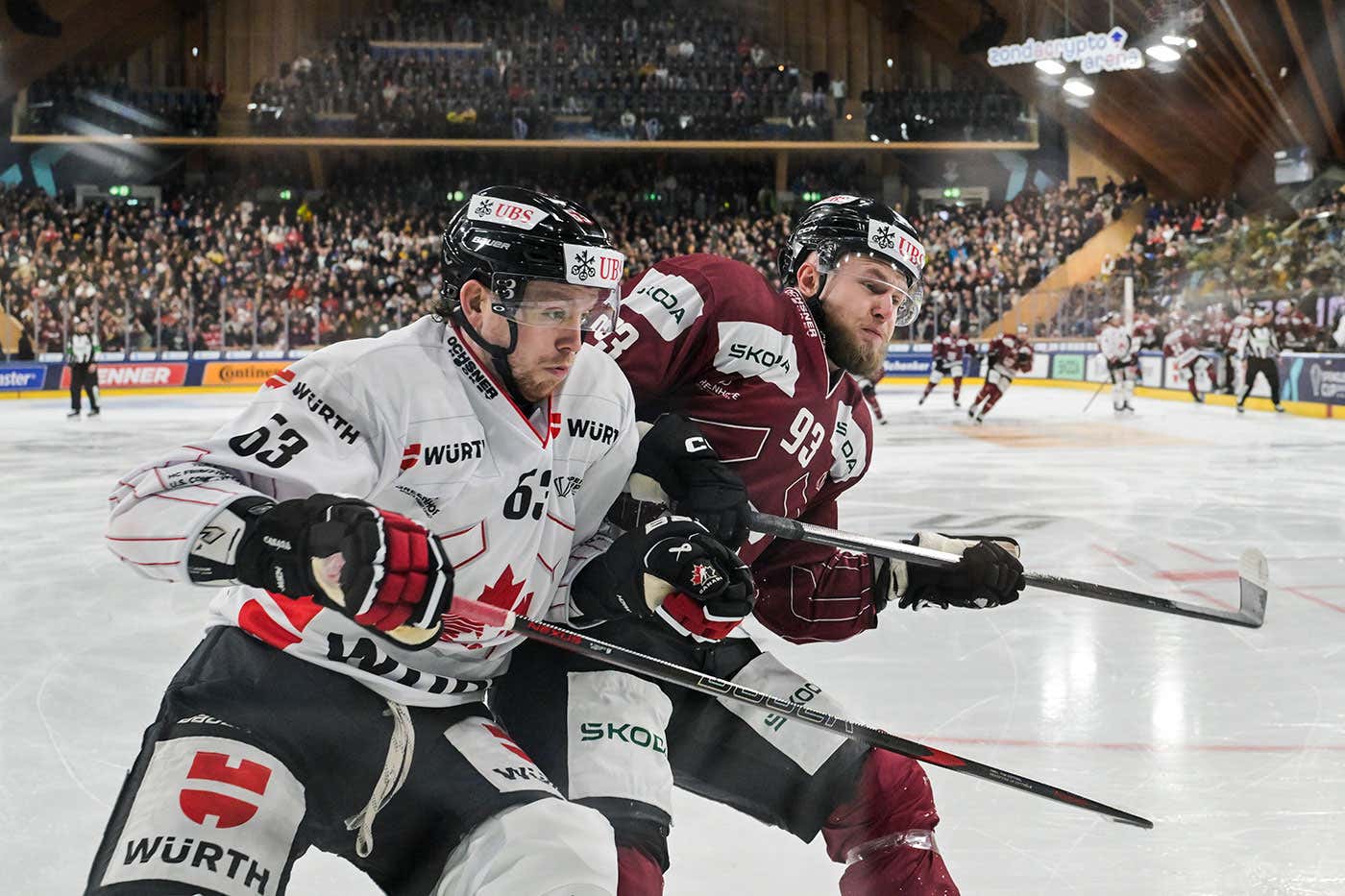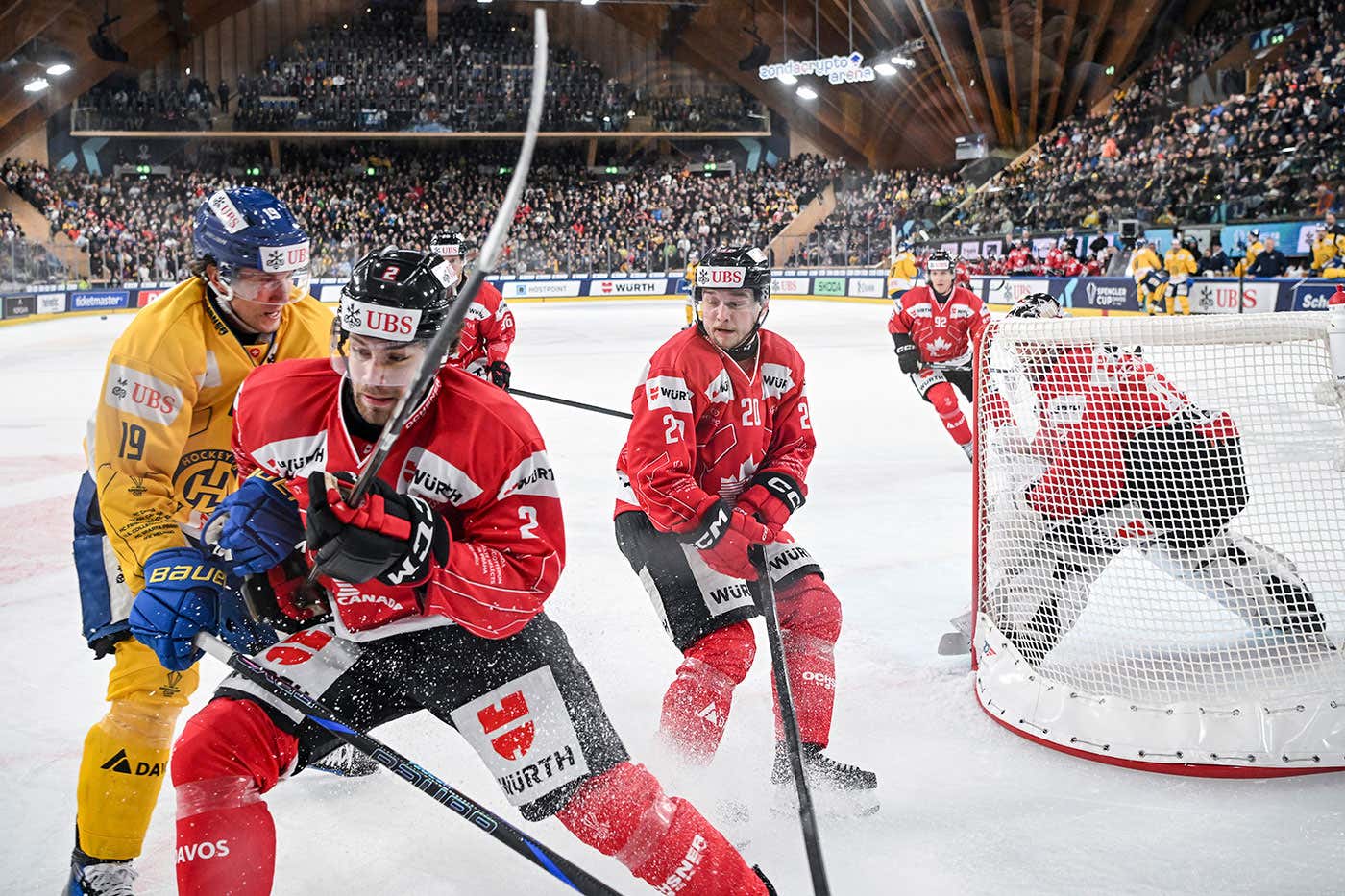One of Canada’s most decorated linespersons during her on-ice career,
Vanessa Stratton has smoothly transitioned to her latest role as an
officiating coach, one of just three dozen around the world.
The Toronto native’s career included 10 national championships, seven world
championships, U SPORTS championships and multiple Clarkson Cup Final games
in the now-defunct Canadian Women’s Hockey League. She is also the only
woman on the IIHF Officiating Committee and works as the female high
performance officiating lead with BC Hockey.
HockeyCanada.ca got the chance to sit down with Stratton and ask about her
journey, her favourite moments and her advice for young officials just
getting into the game.
HC: You transitioned from competitive figure skating to hockey when you
were 13. Who inspired you to become an official?
VS: I was fortunate enough to grow up on skates. From the time we could
walk, my sister and I were enrolled in figure skating. Both of us took to it
and ended up competing at various levels. When we moved to Windsor, I went
on the ice for a practice, got off the ice and said to my parents that I
was ready to try something different and wanted to play hockey.
Switching to hockey led to my journey in officiating. A lot of my friends
were getting part-time jobs at different places. My dad suggested I try
officiating. It was a way to make some cash, but also make my own schedule.
I enrolled in a certification course, got connected to the local
association and referee-in-chief and off to the races we were.
The cool part is my dad had a bit of a vested interest. He played in the
OHL and NCAA and then had a similar pathway where it was suggested he try
officiating. He climbed the ranks quickly, officiating in the OHL and IHL,
and did a quick stint in the NHL for exhibition games. It’s fun to really
look back and see how our journeys were different streams, yet similar
pathways and I give him a ton of credit for promoting officiating to me as
it wasn’t something I had considered at the time.
HC: What is the most memorable game you officiated?
VS: Anything at the international level is always such a privilege, but
nothing beats a Canada-U.S. game. I was afforded the opportunity to do a
few. Kamloops hosted the 4 Nations Cup in 2014 and Women’s Worlds in 2016,
and I was selected to do both events. I was skating the gold medal game in
2014, Canada vs. United States. It was a sold-out crowd – at the time,
women’s hockey was starting to really gain some traction and it was such an
electric atmosphere.
Why this one was so memorable is that it just recently created a full-circle
moment. Prior to some games, we have a group of young officials come on the
ice with us for opening laps and the anthems. That game we had four young
officials on with us. Fast forward to when I was living out in British
Columbia and took on the role with BC Hockey, I found out that two of those
officials were on the ice that day with me. Years later, it made that game
even more special.

HC: What is your favourite part about your role as an officiating coach?
VS: Here’s the really unique thing about both officiating and coaching –
the team that you work with is very rarely the same. In both roles, you have
to adapt how you work together, communicate with one another and leverage
each other’s strengths in short-term competition. It’s more prominent in my
role as an officiating coach and it’s something I appreciate the challenge
of.
Secondly, seeing the officials you work with gain success and achieve their
goals is something that is just so special. And lastly, the people really
make the experience. I get to work with such a variety of people in
officiating – whether it be provincially, nationally or internationally –
and many of them have become lifelong friends. Gabrielle Ariano-Lortie and
I went to almost every one of our international events together, we were
roommates at almost all of them and skated a good chunk of games together.
Now we get to be officiating coaches together and she has become one of my
very good friends.
HC: What do you look for in a young official that can help them get to
the next level?
VS: Of course, the technical skills – skating is at the forefront of those
skills. Agility and mobility, along with strength and speed, are all part
of the toolbox. Then, how do they react in a game – positioning and
movement, how they implement and manage the rules in game. Communication is
also key – how an official communicates with coaches, players and their own
teammates is a predominant trait that is of growing importance for an
official who is striving to do higher levels of hockey.
With the evolution of the sport as a whole, one of the aspects in
officiating that our different leadership groups are really focusing on is
looking for the “whole official.” We want the best officials and those that
have potential to grow, and they need to have the technical skills and
abilities, but they also need to be well-rounded people and bring the
off-ice skills that are necessary to being good teammates and good humans
in our group as well.
HC: We’ve seen how women’s hockey has grown in recent years; what has
that meant for officials and providing more opportunities to showcase
their skills?
VS: International women’s hockey is thriving. Professional women’s leagues
in places such as Switzerland and Sweden are continuing to grow and provide
opportunities for officials overseas. Specifically in North America, the
PWHL has brought a focused energy that has not existed through the previous
leagues and a true professional mentality towards women’s hockey in the two
largest markets in the world.
However, there is still a gap when it comes to the opportunities,
specifically for female officials. We don’t need to provide equal
opportunities, but we should be equitable. And while there has been a
phenomenal number of opportunities and attention on the players, coaches and
administrators within the league, the unpopular opinion is that there have
not been equitable opportunities for officials. And this is something I
would love to challenge and urge the various stakeholders and
decision-makers to change. Let’s close the gap across all facets of the
game and truly become equitable and provide the opportunities to women in
the entire game.
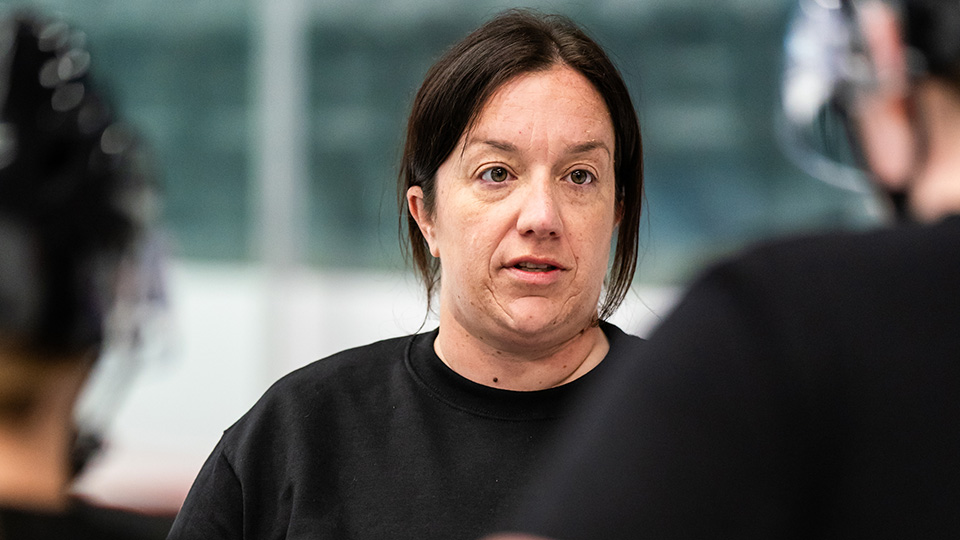
HC: In 2023, you became one of four people—and the only woman—elected to
the IIHF Officiating Committee. What does it mean to be able to have an
impact over the development of hockey officials around the world?
VS: Well, when you read that, it hits a bit on how impactful my role can
be. The truth is, I felt a bit of imposter syndrome when I first started.
First of all, I’m thankful for the opportunity and the trust – both from
the IIHF and Hockey Canada, who supported the nomination. To be able to be
a part of the development of hockey officials at a global level is
incredible.
At the IIHF, there is currently a shift happening – how we facilitate and
implement officiating across licensing and selections, developing and
growing member national associations (MNAs) along with coaching and
education are key facets that are evolving and changing. My role in that
process and to be fortunate to put my own stamp on pieces of a change is
such a unique opportunity. It’s exciting to be a part of such a large-scale
change that will benefit and impact so many across the world and hopefully
be in place for the foreseeable future.
HC: What advice do you have for young women who are beginning their
officiating journey?
VS: I have a few pieces of advice…
- Develop a strong knowledge of the game – Never stop learning.
- Physical fitness is important – Fitness will help you perform
better and boost your confidence.
- Seek out mentorship – Find experienced officials to support you
and help guide your journey.
- Learn from mistakes – We all make them; it’s part of learning
and growing.
- Believe in yourself – Confidence is key.
- Advocate for yourself – Speak up when necessary; it’s important to voice
concerns or seek opportunities.
- Be resilient – Especially for young officials; you will
encounter challenges and still see biases, so it’s essential to stay
resilient and focused on your path.
- Enjoy the journey – Make sure you take the time to enjoy the
ride, because it is really something special!

